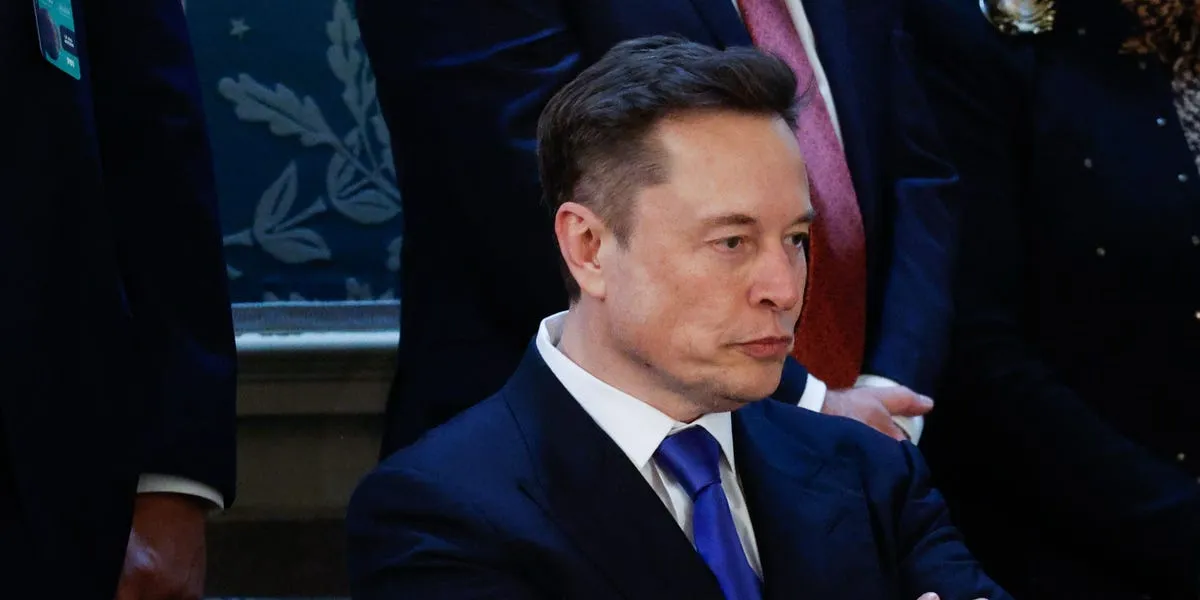
Things may get more challenging for Tesla before they improve, as highlighted by the company's CEO, Elon Musk. Tesla's second-quarter earnings report revealed a significant year-over-year revenue decline, the steepest in over a decade, falling short of already low Wall Street expectations. Following the earnings call, Tesla's shares dropped by more than 4% in after-hours trading. Here are the five most important takeaways from Tesla's call, along with insights from analysts.
During the earnings call, Musk informed analysts that Tesla is entering a "weird transition period." The earnings report attributed this downturn to factors such as shifting tariffs, the unclear effects of changes in fiscal policy, and fluctuating political sentiment. When asked if this indicates a series of rough quarters ahead, Musk responded affirmatively, indicating that the company is indeed facing challenges with diminishing EV incentives and evolving autonomous vehicle regulations. However, he remains optimistic, stating, "I think Tesla's economics will be very compelling by the end of next year." Thomas Monteiro, a senior analyst at Investing.com, noted that while Tesla's current situation is far from ideal for a trillion-dollar company, recent numbers provide a glimmer of hope, suggesting that the worst may be behind them, particularly in the core automotive sector.
Tesla executives shared additional details about their robotaxi initiative during the call. Ashok Elluswamy, Tesla's VP of AI software, discussed a quasi-robotaxi expansion planned for the San Francisco Bay Area. He revealed that the company is testing robotaxis in various U.S. cities, with plans to launch the service in the Bay Area featuring a human driver in the seat. This approach aims to expedite the expansion process while awaiting regulatory approval in California. Elluswamy compared this model to Waymo's early operations in 2018, where human safety monitors were present. Tesla's current robotaxi service in Austin is limited to a select group of influencers and investors. Musk also mentioned bold timelines for the robotaxi service, stating that expansion could occur within weeks, with the Cybercab—Tesla's purpose-built robotaxi—expected to enter volume production by 2026. Furthermore, he anticipates that Tesla's autonomous ride-hailing service could be available to about half of the U.S. population by the end of the year, pending government approval.
Elon Musk unveiled plans for a highly anticipated, cheaper Tesla that is expected to resemble the Model Y. He indicated that this new model could be available to the public in the fourth quarter. In the earnings release, Tesla confirmed that they are expanding their vehicle offerings, including initial builds of a more affordable model in June and aiming for volume production in the latter half of 2025. The idea of a budget-friendly electric vehicle was first introduced by Tesla during its 2020 Battery Day, where Musk mentioned a $25,000 electric car, often referred to as the Model 2, with a launch target initially set for three years ago.
Elon Musk expressed concerns about his ability to maintain control over Tesla amidst pressure from activist shareholders. He admitted that a decrease in his shareholding could jeopardize his position, stating, "I think my control over Tesla should be enough to ensure that it goes in a good direction." Musk's apprehensions are not new; he has previously articulated discomfort with his influence being challenged, particularly regarding Tesla's leadership in AI and robotics. His political involvement has also drawn criticism from some shareholders, who view it as a distraction.
During the earnings call, Tesla's CFO, Vaibhav Taneja, refrained from discussing the potential for Tesla to invest in Musk's other venture, xAI, explaining that the earnings call was not the appropriate forum for such discussions. However, Musk invited shareholders to propose any ideas they wish to present, emphasizing that he would act according to their wishes. Previously, Musk had opposed merging xAI with Tesla but mentioned a desire to put the investment decision to a shareholder vote in November. Kevin Thomas, CEO of the Shareholder Association for Research and Education, criticized Musk's governance approach, suggesting that if a merger were considered, it would streamline resource allocation decisions.
As Tesla navigates these challenges, the insights from the earnings call reveal both optimism and uncertainty about the company's future trajectory in the competitive electric vehicle market.